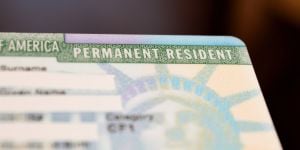
Does being the holder of a work permit in your expat country mean that everything is possible? In the era of remote work and digital nomadism, the work permit is quite likely to be mistaken for a visa with all possibilities. Although it does grant rights to foreign workers, it also comes with a set of rules. What are the risks in case of infringement? Are you allowed to leave your host country for as long as you want?
Kuwait cracks down on work permits and repeated absences
The health crisis and remote work boom have led to new practices, sometimes borderline legal. Some employees leave their host country and remote work overseas behind their employer's back. They believe they are taking advantage of a legal loophole, but in reality, they are committing an offense. Can expat workers just leave their host country at will and for as long as they want? As you would expect, the answer is no! Kuwait's recent announcement reminded everyone that a work permit or any type of visa was tied to specific sets of rules and conditions. In case of infringement, one runs the risk of having their residence permit canceled.
On October 24, Kuwait's Department of Residency Affairs of the Ministry of Interior added a provision to its law on the stay of expat workers. As a result, foreigners who leave the country for 6 months or more will have their visas canceled! Previously, only private visa holders were affected, and the calculation of the time of absence started in May 2022.
The new measure will be in effect on January 31, 2023, with retroactive application as of August 1, 2022. This will be the new date from which the time of absence from Kuwait will be calculated. This means that residence permits for expatriates who have been outside Kuwait for 6 months or more since August 1, 2022, will be automatically canceled. And this includes self-sponsored visas, family visas, student visas and government visas.
The Kuwaiti government is determined to accelerate job nationalization and to reverse the current trend. Kuwait's total population is estimated at 4.6 million, of which 3.4 million are foreigners. The government wants to bring balance, starting with the labor market. Officially, the amended expatriate residency law aims at curbing illegal work permit traffic. In fact, this is all about toughening up the stance towards foreigners, who are being blamed by some for the economic downturn during the Covid pandemic.
Other countries' stand on work permits and absences
Many other countries apply a similar measure as Kuwait, such as the United Arab Emirates (UAE), where sanctions apply only to expatriates living outside the country for six months or more continuously. However, the government provides for some exceptions, especially for expatriates working in the public sector who are assigned by their employer to undergo a long training course abroad. They are allowed to stay outside the UAE for the duration of the course, even if it lasts more than 6 months. The same rule applies to expatriates working for an employer having offices overseas. Expatriates accompanying UAE diplomats are also covered by this exception.
In the United States, the rule is straightforward! Green card holders who stay abroad for more than 6 months or who have made multiple trips outside the United States risk having their green card withdrawn. The risks are more significant if the CBP (Customs and Border Protection) has issued a warning. However, the rule isn't so clear for for lawful permanent residents (LPR). In principle, an LPR holder who stays abroad on a "non-temporary" basis automatically forfeits their status. In this case, what does "non-temporary" exactly mean? In the absence of a quantified duration, common sense prevails: the length of stay in the United States must be greater than the total amount of time spent outside the United States. This will allow CBP to confirm whether the principal residence is in the United States or not.
What are the limitations of remote working abroad?
Canadian immigration insists on the fact the work permit isn't a travel authorization. Faced with the boom of remote working and digital nomadism, lawyers also insist on this crucial point. Basically, a work permit is issued by a country to allow an individual to carry out a given professional activity. If short stays abroad are allowed, remote working in another country for a long period while being a work permit holder is not allowed.
In short, to maintain your residency status, you must maintain ties with your host country, the first of which is that of residing in the country. Hence, the time spent in another country must not exceed the time spent in the expat country. Penalties can be severe in case of infringement, especially the cancellation of the residence permit, along with all the difficulties one can imagine when re-applying for a new permit in this country.



















